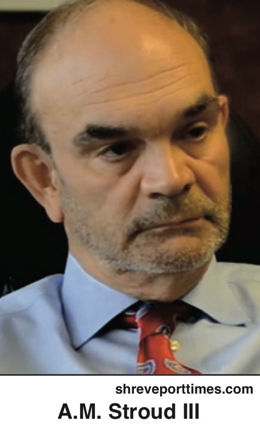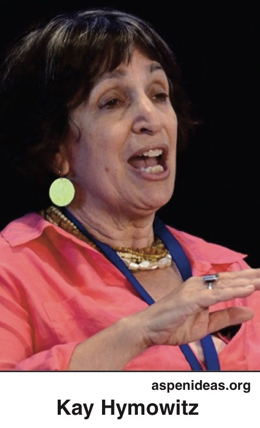Rascals case in brief
In the beginning, in 1989, more than 90 children at the Little Rascals Day Care Center in Edenton, North Carolina, accused a total of 20 adults with 429 instances of sexual abuse over a three-year period. It may have all begun with one parent’s complaint about punishment given her child.
Among the alleged perpetrators: the sheriff and mayor. But prosecutors would charge only Robin Byrum, Darlene Harris, Elizabeth “Betsy” Kelly, Robert “Bob” Kelly, Willard Scott Privott, Shelley Stone and Dawn Wilson – the Edenton 7.
Along with sodomy and beatings, allegations included a baby killed with a handgun, a child being hung upside down from a tree and being set on fire and countless other fantastic incidents involving spaceships, hot air balloons, pirate ships and trained sharks.
By the time prosecutors dropped the last charges in 1997, Little Rascals had become North Carolina’s longest and most costly criminal trial. Prosecutors kept defendants jailed in hopes at least one would turn against their supposed co-conspirators. Remarkably, none did. Another shameful record: Five defendants had to wait longer to face their accusers in court than anyone else in North Carolina history.
Between 1991 and 1997, Ofra Bikel produced three extraordinary episodes on the Little Rascals case for the PBS series “Frontline.” Although “Innocence Lost” did not deter prosecutors, it exposed their tactics and fostered nationwide skepticism and dismay.
With each passing year, the absurdity of the Little Rascals charges has become more obvious. But no admission of error has ever come from prosecutors, police, interviewers or parents. This site is devoted to the issues raised by this case.
On Facebook
Click for earlier Facebook posts archived on this site
Click to go to
Today’s random selection from the Little Rascals Day Care archives….
Click for earlier Facebook posts archived on this site
Click to go to
Today’s random selection from the Little Rascals Day Care archives….
Rare words of prosecutorial remorse
 July 5, 2015
July 5, 2015
“In March, A. M. Stroud III, lead prosecutor at trial, wrote a remorseful article in The Shreveport Times, declaring, ‘Glenn Ford was an innocent man,’ taking responsibility for a rush to judgment and arguing for the abolition of the death penalty.
“ ‘I apologize to Glenn Ford for all the misery I have caused him and his family,’ Mr. Stroud wrote. ‘I apologize to the family of (the murder victim) for giving them the false hope of some closure. I apologize to the members of the jury for not having all of the story that should have been disclosed to them. I apologize to the court in not having been more diligent in my duty to ensure that proper disclosures of any exculpatory evidence had been provided to the defense.’
“He concluded: ‘I end with the hope that providence will have more mercy for me than I showed Glenn Ford. But I am also sobered by the realization that I certainly am not deserving of it.’ ”
– From “Glenn Ford, Spared Death Row, Dies at 65” by Bruce Weber in the New York Times (July 2)
By the time Mr. Ford was exonerated and released in 2014, he had served 29 years in Louisiana’s Angola prison. His freedom was short-lived: In less than 16 months he would be dead from lung cancer.
Prosecutor Stroud deserves credit for his humble and agonized apology, however late. His words could just as truthfully have come from the mouths of H.P. Williams, Bill Hart and Nancy Lamb – but of course they haven’t.
Day-care ritual-abuse claims vs. ‘The Cosby Show’
 Sept. 20, 2013
Sept. 20, 2013
“In 1984 in particular we see a turning point in the media representation of American motherhood. Two major media events exemplified the cultural contradictions in which working mothers were caught:
“On one end of the spectrum, the McMartin day-care child-molestation scandal (followed by a barrage of similar scandals), and on the other end the spectrum, the premiere and runaway success of ‘The Cosby Show.’
“The former served as the direst warning of what happens when mothers go to work and entrust their children to others. The latter suggested that you could work at a demanding job, express frequent exasperation with your kids and threaten to murder them on a regular basis, and yet have a loving husband and children and be a terrific mother….”
– From “The Mommy Myth: The Idealization of Motherhood and How It Has Undermined Women” by Susan J. Douglas and Meredith W. Michaels (2004)
‘Antifeminism’ to blame? Not so fast, Mr. Beck
 Aug. 24, 2015
Aug. 24, 2015
“(Richard) Beck is generally restrained in his narrative, letting the details pile up to a well-deserved indictment of the many players in the ‘moral panic.’ But in explaining how these fever dreams managed to seize the national imagination, he does a little witch-hunting of his own. The frenzy, he tells us, was a backlash by family-values conservatives to the social changes around them. It was a period of ‘an intense reactionary antifeminism.’
“This is an inexcusably partial interpretation. From Beck’s own evidence, feminists themselves were vital players in the hysteria. Gloria Steinem donated money to the McMartin investigation, and Ms. Magazine ran a 1993 cover article ‘BELIEVE IT! Cult Ritual Abuse Exists,’ even though, by that time, the general public had grown increasingly skeptical of the idea.
“In part because of her aggressive pursuit of child abusers – and conviction of a number of people later exonerated – a relatively unknown Dade County state attorney named Janet Reno was picked by President Clinton to become the nation’s first female attorney general. According to Debbie Nathan and Michael Snedeker, the authors of ‘Satan’s Silence,’ (Kee) MacFarlane had been a lobbyist for NOW before she set about terrifying the children of Manhattan Beach.
“With his partisan recounting of the child abuse panic of the 1980s, Beck turns what could have been a careful history about one facet of the nation’s exhausting culture wars into one more illustration of them.”
– From “ ‘We Believe the Children,’ by Richard Beck” by Kay Hymowitz in the New York Times Sunday Book Review (Aug. 21, 2015)
I’m posting this criticism of Beck’s book – from an otherwise laudatory review – mostly for archival purposes. My own interest lies less in the tangled roots of the day-care panic than in its results: defendants wrongfully incarcerated, children profoundly misguided and therapists and prosecutors unjustly unscathed.
Oh, to see ourselves as other see us – ouch!
 Jan. 11, 2013
Jan. 11, 2013
“Chris Bean (Bob Kelly’s lawyer until becoming involved as a child-witness parent) told me that when the townspeople first saw the documentary, they thought it was OK and that nobody thought my film had personally misrepresented them.
“But then, he told me, the firestorm of national attention began and people were writing to the mayor, to the townspeople, to many of the families I interviewed, and it was like a house of cards, you know. It all came tumbling down on them.”
– Ofra Bikel, quoted in the Newark Star-Ledger (July 18, 1993)
“The only woman who never complained after the first film,” Bikel said, was Jane Mabry – Patient Zero in the rumor contagion.











0 CommentsComment on Facebook